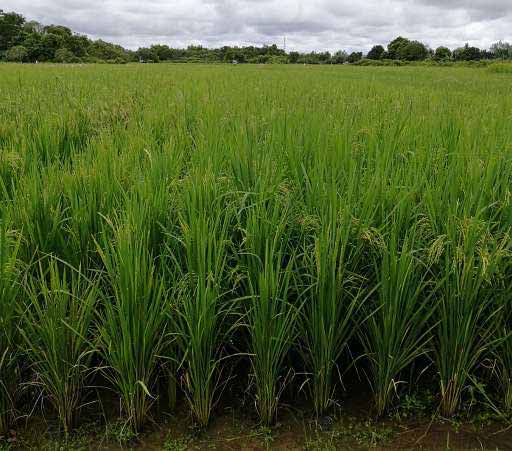The President of PeSAWAH, Nurfitri Amir Mohammad does not believe the Smart Sawah Berskala Besar (Smart SBB) project may benefit the planters and farmers because it gives an upper hand to ‘investors’.
He was questioning the concept of Smart SBB, asking, “Is Smart SBB here to benefit private companies to make a profit or to help farmers?”
“The concept lacks clarity on the subject (of the powers given to investors) because it does not present a standard template of the promises made between farmers and corporations.”
Fitri gives an example of farmers who want to proceed with an investor, but the farmers have to apply for a loan from Agro Bank first.
“In one state, some farmers had to apply for a loan from Agro Bank to proceed with Smart SBB, although this was never stated in the plan.
“In addition, if paddy fails, some investors would want to convert the field into a shrimp pond,” he says.
A Memorandum of Understanding (MoU) for the Project Smart Sawah Berskala Besar was signed on Nov 9 between the government and seven leading companies.
Smart SBB was introduced in 2020 with the concept of a fusion involving two parties: farmers and investors.
Farmers and corporations that invest in the programme will be monitoring the process from beginning to end until both parties reap the benefit.
The corporation will ensure that the soil is constantly tested and monitored, in collaboration with the farmer, as the right seed is selected, fertilisers and pesticides are applied with care, and the rice from each state and farm is properly marketed.
FOOD SECURITY
Fitri Amir says there are many areas where the deal does not favour farmers.
“Rice and paddy are not commodities in the same way that oil palm and rubber are, but they are critical for food security. As a result, once this concept is implemented, our industry will become a commodity for them to make a profit,” he insists.
Farmers rely on paddy for their daily staple, and he emphasises that the industry’s baseline is food security instead of business protectionism.
Simultaneously, he casts doubt on the concept of a no-contract between farmers and investors, a deal that is based only on promises.
Because paddies are typically harvested every six months, Smart SBB requires private companies to only rent the field from farmers and to take control from planting to harvesting within four seasons of rice farming periods (equal to two years).
“The plan does not include a contract with the investor, but the investor has been given four seasons, so what happens to the farmers after that?”









